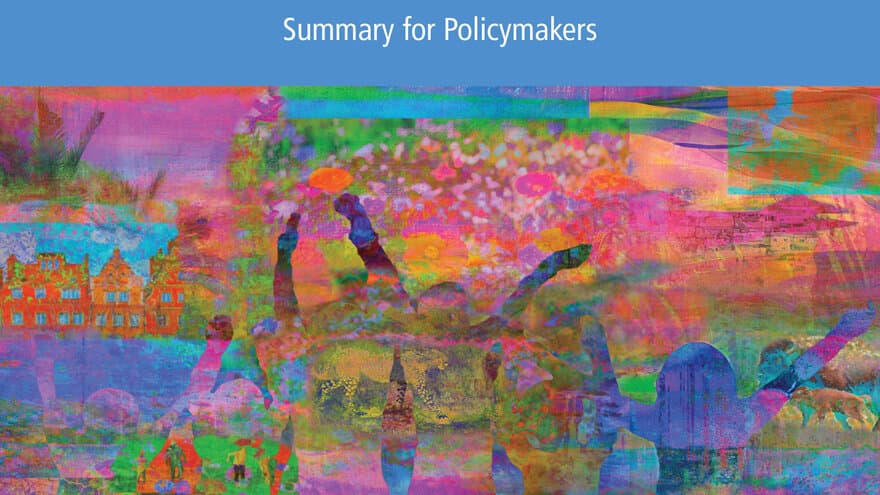"We have to act now to secure a liveable future for everyone on earth," says NMBU professor Siri H. Eriksen. She is one of the authors behind the most recent Intergovernmental Panel on Climate Change report.
The Working Group II contribution to the UN Intergovernmental Panel on Climate Change (IPCC)’s Sixth Assessment Report addresseses impacts of, vulnerability to, and adaptation to climate change. It looks at how climate change impacts the natural world and human societies, and how we can respond by adapting, reducing emissions and focusing on sustainable development.
Siri H Eriksen and Tor A Benjaminsen, both professors at the Faculty of Landscape and Society at the Norwegian University of Life Sciences (NMBU), are among the lead authors of the report.
Climate resilient development
Siri H Eriksen is one of the lead authors of Chapter 18 of the report. It addresses the vital importance of climate resilient development, whereby society adapts to climate change and cuts greenhouse gas emissions in a manner that promotes sustainable development.
"What we know about the impacts of climate change, risk and vulnerability means that time is of the essence when it comes to working to achieve climate-resilient development. The SDGs provide a good yardstick for how we can design actions to address increased climate risk and limit warming," says Eriksen.
Since the last assessment report was published in 2014, more knowledge has been acquired about the negative impact climate change has already had on ecosystems and societies, and about how the risks increase when warming exceeds 1.5 degrees. Some changes are irreversible - particularly when warming exceeds 1.5 degrees, whilst we simply cannot adapt to other changes. This will lead to loss of species, water scarcity, negative health impacts and increased poverty and vulnerability.
There is a window of opportunity, however, Eriksen explains.
"The report concludes that the decisions we all make together - the authorities, private sector, civil society, you and I - can help achieve climate-resilient development. How these actors coordinate their efforts and contribute to system changes across sectors is a vital factor."
‘"The decisions made in the next decade will determine the course of development. Unless greenhouse gas emissions decline rapidly and we strengthen climate adaptation, we will lose the possibility of moving in a climate resilient-direction. Our window of opportunity will close," warns Eriksen.
Climate justice
Tor Arve Benjaminsen is the lead author of Chapter 1 of the report, which sets out its main points and key concepts.
"What sets this report apart from earlier reports is that it also addresses social justice and climate justice. If climate actions are perceived as unfair, they risk being met with various forms of resistance and revolt," he explains.
The report sets out three criteria for climate justice: Fair distribution, inclusive participation and recognition. This means that the costs and benefits of climate actions must not be distributed unequally. Affected groups must also have the opportunity to state their opinion on climate actions that concern them.
The report draws attention to the importance of recognising indigenous peoples’ local knowledge as a means of achieving successful climate adaptation.
"In the Norwegian context, this will mean for example that reindeer husbandry policy is based on the knowledge of Sami reindeer owners," says Benjaminsen.
